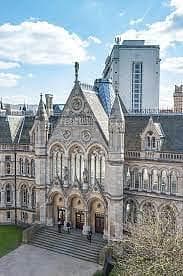BSc Hons Geography at Nottingham Trent University
Nottingham, United Kingdom
- Tuition Fee £ 17,500
- Country Rank-
- Duration36 Months
- Score IELTS: 6 TOEFL: 74
Program Overview
Disaster relief, the climate crisis, diminishing resources, and social inequity: where others see questions, geographers find answers. Our course attracts everyone from the environmentally curious to the ecologically inspired; people who are naturally passionate about how humans interact with the environment, and vice versa. With us, you won’t just learn how the world works — you’ll find out how to make a meaningful difference to it.
Delivered at our stunning Brackenhurst Campus, this highly practical degree is packed with fieldwork, trips and opportunities to get your hands dirty. Geography’s a broad discipline, and that’s why you’ll be able to choose what areas of geography you study – your degree, your choice. You could complete an industry placement on the sandwich route, and study in locations such as Australia or Canada as part of our international exchange programme. We’ve built this course around exciting real-world experiences, because we think you should graduate with more than just a qualification.
Cost Of Studying At Nottingham Trent University
Interest rates as low as 8.9% *
250K+
Students Assisted
800Cr+
Loan Amount Disbursed
5000+
Loans Sanctioned
